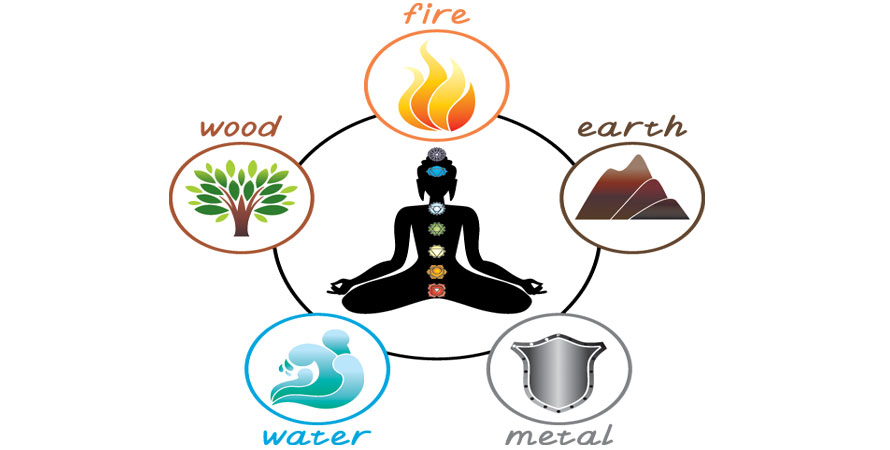What Is Feng Shui and How to Use It in Your Life

Introduction
Given the circumstances of the previous year, a lot of us have been spending more time in our homes. Whether you’re working, attending online courses, or just relaxing and enjoying the downtime, it’s important to feel comfortable while in your personal space.
Feeling better in your home can have a significant effect on your health, both physically and mentally. Sometimes though, it’s not easy to just up and remodel sections of your house, and it’s also not economical at times either. This is where you might need to channel your inner creativity and learn the art of Feng Shui.
Before putting our interior designer hats on, let’s take a look at what Feng Shui is and how to use it.
What is Feng Shui?
Feng shui is one of the oldest art forms and has been practiced for thousands of years. It’s used to bring harmony and balance to your surroundings while bringing peace, health, and good fortune to you and the people you surround yourself with.
In Chinese, the word feng shui translates to wind and water. It is significant because, in Chinese culture, these elements symbolize health and good fortune. The concept is based on the belief that our world is full of energy or Chi.
The Chi that surrounds you and the environment you live in can make you flourish or fall. So, it is important to boost your Chi and be in harmony with the world’s energy to alleviate stress and bring peace to you and your loved ones.
Feng shui has records dating back to 960 B.C. It achieved mainstream adoption during Zhou leadership in China, which stemmed from 770 B.C. to 475 B.C.
Over the decades, feng shui has developed to incorporate new tools—most reputably the magnetic compass, which was invented about 3,500 years after the origins of feng shui.
Today, feng shui practitioners use a compass to locate structures and objects throughout a room, normally from the reference point of the front door.
Yet, for this user-friendly guide to feng shui, we’re centering on things that anyone can easily do to create more balance in their space—no compass needed!
The Elements of Feng Shui

In feng shui, polarity is expressed with the yin and yang principle. This “energy” is made up of two parts: one that exerts force and the other that receives it. Metal, earth, fire, water, and wood are the Five Elements, Forces, or wu xing, which are first described in Chinese literature as the main components of this ancient art form, which ultimately function similarly to yin and yang.
They are incredibly significant, with the term “elements” referring to forces that are central to human existence rather than actual substances. Earth is a shield or a point of equilibrium where the polarities balance out. In other words, Chinese medicine aims to balance yin and yang in the body, while the goal of feng shui is to align an area, place, and environment.
Some of the best ways to improve your Chi with feng shui start right in the comfort of your own home.
Basic Principles of Feng Shui
As briefly discussed above, feng shui centers itself around five elements. The elements directly affect the way we behave and interact with our space, and vice versa.
So what better way to learn some simple techniques in which you too can implement this art form in your own home than by showcasing the elements that each interior design tip is tied to.
1. Wood
The use of wood components in your home can help to promote creativity, energy, and enhanced intuition. Try blending clean or modern lines with more organic shapes, add a generous amount of house plants, wood furnishings, and natural textiles like cotton and linen.
2. Fire

This element symbolizes leadership and can help you feel bolder and more empowered at home. There’s a variety of methods to bring more of it into your home, including the improvement of natural light (you can use mirrors to help bounce natural light from windows across rooms), as well as candles, and the addition of art pieces with fire colors such as red, orange, and yellow.
3. Earth
Bring nature inside to feel more balanced and grounded. Try using more earth tones—think fall colors like browns, dark greens, and sage—as well as including landscape photography. These are two very simple ways to achieve a plash of the earth element in your interior design planning.
4. Water

Water is the element of otherworldliness and also encompasses your feelings, intuition, and wisdom. Glass and mirrors can add more of this key element to your space, but so can water features such as fountains and wavy asymmetrical decoration.
5. Metal
The last component of feng shui is metal, which symbolizes simplicity and clarity. To include this element in your space, try adding metal objects (brass, gold, silver, etc.), as well as items with metallic tones, oval-shaped objects, and gemstones.
In all elements of feng shui, balance is vital. Too much of any element can become counterproductive, ultimately working against the flow of energy rather than with it.
Some indications that you need to tone back one of the elements can include feelings like confusion, stagnation, or stress at home, or if your room feels disorganized and out of balance. If you start noticing or experiencing these feelings – don’t worry!
Just take some time to look for what you can remove, rather than what you might need to add to your interior space.
What to Avoid in Feng Shui
As with anything, there are a few interior faux pas you’ll want to avoid when trying to balance and implement feng shui principles in your home.
1. Sharp Objects
Sharp objects may create negative chi. Avoid using these objects in the house entrance, particularly if they’re overlooking the front door as this will turn positive energy into negative Chi.
2. Bathroom Placement
This one can be a bit complicated if a house is already built. However, if you’re still planning or designing your own home with feng shui principles in mind, try to be keen about bathroom placement. Bathrooms shouldn’t be in front of the main entrance nor directly above it.
3. Don’t Install Mirrors Anywhere

Mirrors are an important factor in feng shui as they serve to bounce energy around. Yet, a frequent mistake people make is placing a mirror directly in front of a door. Bear in mind that when Chi or good energy enters your home, it can bounce off of the mirror and leave again.
4. Master Bedroom Placement
As a customary rule, a bedroom over the garage is not great for feng shui. Garages have a lot of “in and out” energy, which is the polar opposite of the type of energy you want to promote in the bedroom.
5. Clutter
Lastly, you can never be truly at peace, balanced, and have Zen if you can’t see your kitchen counters through your dirty dishes or your bedroom floor through all the laundry spread everywhere.
Clearing out and removing clutter is probably the most essential part of fostering good vibes and feng shui in your home. Clutter prompts your qi to be inactive and blocks the flow of energy.
Conclusion
Whether you need organization in your life or a lifestyle change in general, feng shui is here to help. With its various health benefits for both body and mind, you should be able to find a few of these tips and tricks helpful.
Always remind yourself to spend time nurturing your energetic chi (positive energy) both physically, and in your home space environment.
Deprecated: Function WP_Query was called with an argument that is deprecated since version 3.1.0!
caller_get_posts is deprecated. Use ignore_sticky_posts instead. in /home/healthwebmagazin/skinformulations.com/wp-includes/functions.php on line 6121






